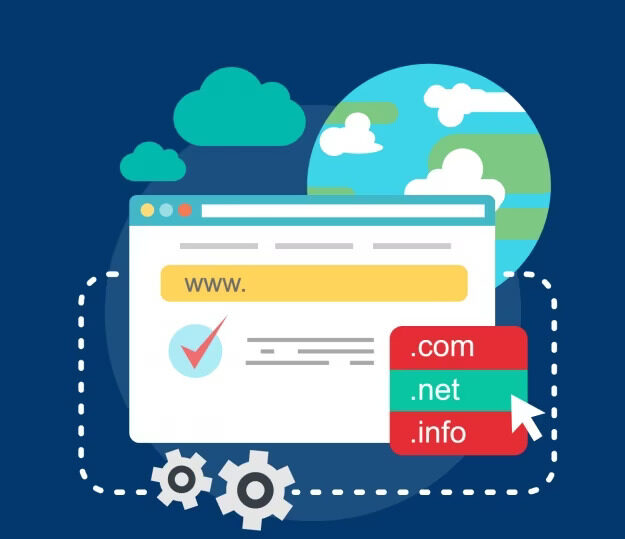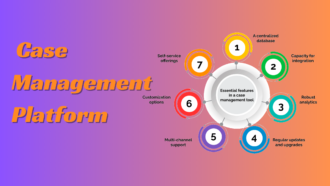Tools for Obtaining Domain Details
- 1 The Role of Domain Details in SEO and Website Analysis
- 1.1 SEO strategy development
- 1.2 Competitor analysis
- 1.3 Domain ownership and authenticity
- 1.4 Performance and user experience
- 2 WHOIS Lookup Tools
- 2.1 Utilizing ICANN Lookup for Domain Ownership Information
- 2.2 DomainTools WHOIS Lookup for Comprehensive Domain Data
- 3 Domain Age and Registration History Tools
- 4 Domain Authority and Backlink Analysis Tools
- 4.1 The Relevance of Domain Authority in SEO
- 4.2 Tools to Explore Domain Authority
- 4.3 Analyzing Backlinks with Backlink Spam Checker
- 5 Conclusion
Obtaining comprehensive domain details is an essential aspect of any SEO and website analysis strategy. Domain details encompass a wide range of information about a website, including ownership data, domain age, authority metrics, hosting information, and much more.
These details provide crucial insights into the history, credibility, and performance of a domain, helping SEO specialists make informed decisions and develop effective strategies. By understanding the comprehensive domain details, SEO professionals can gain a deeper understanding of their own website’s strengths and weaknesses.
The Role of Domain Details in SEO and Website Analysis
There are several important aspects that can be influenced by understanding your domain details.
SEO strategy development
Domain details play a pivotal role in shaping an effective SEO strategy. For instance, analyzing domain authority and backlinks can help prioritize link-building efforts and identify authoritative websites for potential collaborations. Start by using the domain expiration date checker to avoid ruining your trust level with older domains.
Competitor analysis
In this highly competitive landscape, understanding competitor domain details is vital. Analyzing their domain authority, backlink profiles, hosting providers, and website traffic can unveil valuable insights into their successful tactics, allowing SEO specialists to adapt and stay competitive.
Domain ownership and authenticity
WHOIS lookup tools reveal ownership information, ensuring the legitimacy of a domain and helping identify potential red flags or fraudulent activities.
Performance and user experience
Comprehensive domain details, such as website traffic and performance metrics, allow SEO specialists to gauge user engagement, identify high-performing pages, and optimize website speed and user experience.
WHOIS Lookup Tools
WHOIS is a protocol used to query databases that store domain registration information. It provides valuable details about the domain owner, registration date, expiration date, and contact information. WHOIS lookup tools enable SEO specialists to access this information and gain insights into the authenticity and ownership of a domain.
Utilizing ICANN Lookup for Domain Ownership Information
The Internet Corporation for Assigned Names and Numbers (ICANN) operates the central WHOIS database, making it a reliable source for domain ownership information.
By using ICANN lookup tools, SEO specialists can verify the domain owner’s details, contact information, and registration history. This information is crucial for understanding the legitimacy of a domain and identifying potential issues or discrepancies.
DomainTools WHOIS Lookup for Comprehensive Domain Data
DomainTools is a reputable platform that offers a comprehensive WHOIS lookup service. It goes beyond basic ownership information and provides historical domain data, including past ownership, changes in registration, and DNS records. SEO specialists can leverage DomainTools to analyze domain history, assess the credibility of a domain, and uncover any patterns that may affect its SEO performance.
Domain Age and Registration History Tools
The Impact of Domain Age on SEO
Domain age is an important factor considered by search engines when determining a website’s authority and credibility. Older domains tend to have a competitive advantage in search rankings due to their established history. Understanding a domain’s age can help SEO specialists set realistic expectations for SEO outcomes and devise appropriate strategies.
Using Domain Age Checker Tools to Verify Domain Age
Domain age checker tools provide a simple way to verify a domain’s age by displaying the date of its creation or registration. These tools are valuable for assessing the maturity of a domain and understanding its potential search engine authority.
Domain Authority and Backlink Analysis Tools
The Relevance of Domain Authority in SEO
Domain authority is a critical metric used to measure the overall credibility and influence of a website. Developed by Moz, domain authority (DA) is scored on a scale of 1 to 100, with higher scores indicating stronger authority. Websites with high domain authority are more likely to rank well in search engine results, making it an important factor to consider when evaluating domain details for SEO purposes.
Tools to Explore Domain Authority
Utilize domain authority checker to get valuable domain authority insights. By entering domain names, SEO specialists can access their domain authority score, along with number of dofollow and nofollow domains, gov links, edu links and more. Analyzing domain authority helps determine the relative strength of a domain compared to its competitors and aids in identifying potential link-building opportunities.
Analyzing Backlinks with Backlink Spam Checker
Backlink Spam Checker is a powerful tool that allows SEO specialists to analyze a domain’s backlink profile comprehensively and make sure there are no spammy backlinks on a site they wish to purchase.
Understanding domain authority and backlink profiles of both your website and your competitors’ sites helps in formulating a well-informed SEO strategy. By using these tools, SEO specialists can assess the authority of a domain, identify areas for improvement, and develop effective link-building campaigns.
Conclusion
There’s a whole plethora of tools that let you learn more about your domain, and this sort of information is incredibly important if you want to create a thoughtful development strategy for your online business. You don’t have to use all of them, but all of these tools can absolutely help you find success in marketing.


















